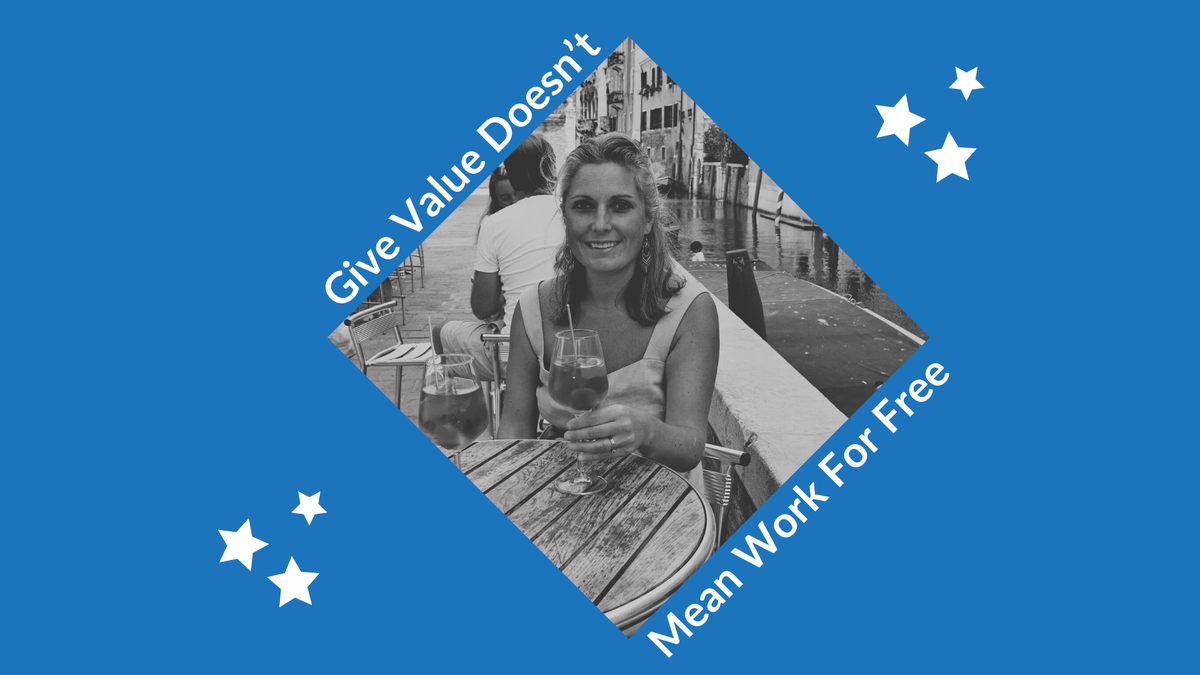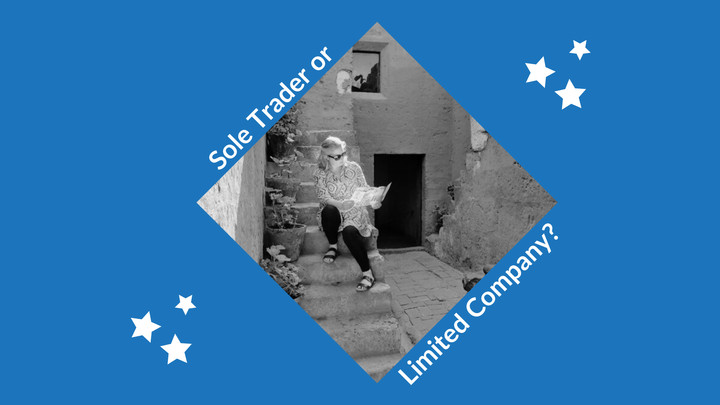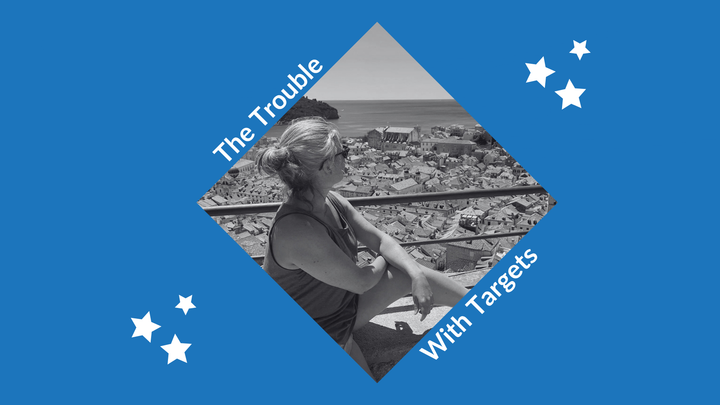Giving Value Doesn't Mean Working For Free

and "People are more likely to do business with people they know, like, and trust."
Are you familiar with this phrase? The idea is you build relationships with people so that when they are in the market for what you sell, they won't think twice about buying from you.
So how do you get people to know, like, and trust you?
Well, that's where the giving value part comes in. If you help people, they are going to like you (plus it's a chance to build trust by showing you know what you're doing).
So if you apply this to content marketing, you give away great tips and advice to help build those relationships - to let people get to know you and like you, but most importantly, trust you.
And to an extent, it works.
That's why I'm a big fan of creating "valuable" content - content that actually provides readers or viewers with useful, helpful or actionable advice. Tips, techniques, real-world examples - all that stuff.
I write blog posts, create videos, share tips on social media. I have a free email course and weekly emails. And I have low cost products (books, courses, co-working events) that provide value at an affordable price.
But when it comes to bespoke advice, I don't give that away for free.
It's not that I'm greedy - it's just not fair on my paying clients if I'm giving away my expertise to others for nothing.
And my time is valuable - there aren't unlimited hours in a day, so I need to be careful how I use those hours. I have to prioritise my paying clients, my own business, my family, my mental health, and so on. I can't be spending hours a week giving away my time for free.
And neither should you.
There’s a fine line between using your expertise as a marketing tool and working for free. And it’s a line that’s easy to blur.
The problem is too many people promote the idea that you have to do everything possible to build strong relationships before you close a sale. So they suggest jumping on calls with people, meeting for coffee, giving away bespoke advice, and creating detailed proposals.
But if you’re constantly giving away free advice, doing free calls, and meeting random strangers for coffee, you end up overworked and underpaid.
Filling your days with calls and meetings might feel productive, and helping people does feel good. But if you’re not being paid for all that time you're giving away, you will be busy but not profitable.
The idea that you shouldn't charge for "a bit of advice" or for people to "pick your brains" is nonsensical.
If that advice helps them make money, save money or improve their life in some way, why wouldn't they want to pay for it?
Filter out timewasters
I'm not saying you should never help people or do a free call. But filter out the time-wasters before committing time and energy to them.
Don't rush into calls or meetings without doing a few basic checks.
- Can you actually help this person - do you offer what they need?
- Do you want to help this person - are they the type of client or business you want to work with, and is the work the type of work you want to do?
- Are they willing to pay for your services?
If they're just looking for some free advice with no intention of buying, why should you give them the benefit of your experience? There's no point travelling to and from an hour-long meeting, then spending another hour putting together a proposa,l only to find they have no budget for your services.
If you don't value your time, nobody else will.
Give value without giving up your time
Create a bank of resources (articles, PDFs, videos, etc.) that cover frequently asked questions or common problems. You can then share these with people who need your help but can't afford to pay. Or use them to build trust.
For example, I have a free email series that covers the basics of copy and content writing. It's not as comprehensive as my paid course, and it's not as good as the bespoke support you get working with me one-on-one. But it's something I can give people to help them get started.
It's the same with a lot of my blog posts - they give people a starting point. Stuff they can go away and try for themselves.
Once I've made the content, I can share it over and over again - it's a way to help lots of people without giving up lots of my time.
People are often afraid of giving away too much. They think if they explain how to do something, people won't hire them to do it. But this isn't the case. People can learn how to cook, but will still eat out at restaurants. People can learn how to do their own accounts, but will still hire an accountant.
Showing people how to do something for themselves doesn't necessarily mean they won't want your help implementing the stuff.
Giving value is not an alternative to selling
One of the reasons so many people buy into the "give value" strategy is it's viewed as a "nicer way of selling". You share your expertise, and people want to buy from you because you helped them.
But there's a big problem with this.
Giving value is not an alternative to selling.
Building relationships and doing content marketing does not mean people just turn up at your door with a bag of cash. You still have to sell. You still have to let people know what you offer.
Unfortunately, too many people focus on the giving value part and forget to promote their services.
By all means, share tips and advice and give value by the bucketful, but remember to tell people what you do and how to buy it every now and then.
Speaking of which: I offer one-to-one support on an ad-hoc or ongoing basis, and you can find out more about my services here.



